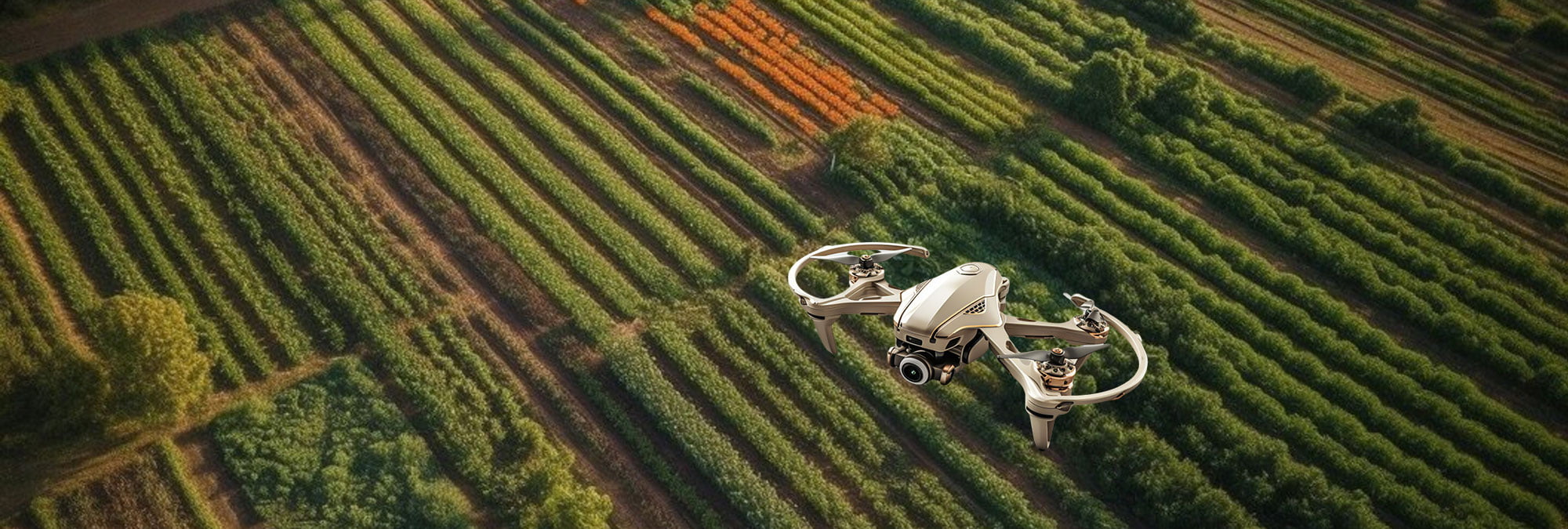Agricultural drones, also known as unmanned aerial vehicles (UAVs), have rapidly become indispensable tools for modern farmers. They offer a range of benefits, from precision farming to increased efficiency and cost-effectiveness.
This article explores the current and future role of drones in agriculture and their potential to revolutionise the industry.
Advantages of Agricultural Drones
1. Precision Farming:
Drones enable farmers to precisely monitor and manage their crops, resulting in improved yields and reduced waste.
2. Increased Efficiency:
Drones can cover large areas of land quickly and easily, allowing farmers to save time and resources.
3. Cost-effectiveness:
Despite the initial investment, drones can lead to long-term cost savings by reducing the need for manual labour and optimising input use.
4. Environmental Benefits:
By enabling more precise application of inputs, drones can reduce the environmental impact of farming, including pollution and soil erosion.
Drone Technology in Agriculture
Agricultural drones are equipped with various sensors and imaging devices to collect data about crop health, soil conditions, and other factors. These drones are typically controlled remotely and can fly autonomously or be guided manually.
Types of sensors used in agricultural drones include multispectral cameras, which capture images in multiple wavelengths of light, and thermal cameras, which detect temperature differences in the field.
Applications of Agricultural Drones
1. Crop Monitoring and Management:
Drones can provide real-time data on crop health, allowing farmers to identify issues such as nutrient deficiencies or pest infestations early and take corrective action.
2. Soil Analysis and Mapping:
Drones can assess soil health and create detailed maps of fields, helping farmers make informed decisions about fertiliser application.
3. Irrigation Management:
Drones can monitor soil moisture levels and apply water only where it is needed, reducing water waste and improving crop yields.
4. Pest and Disease Detection:
Drones can monitor fields for signs of pests or disease, allowing farmers to take proactive measures to protect their crops.
Types of Agricultural Drones
There are several types of agricultural drones available, including fixed-wing drones, which are designed for long-distance flight, and multi-rotor drones, which are more manoeuvrable.
Hybrid drones combine the benefits of both fixed-wing and multi-rotor drones, offering long-distance flight and manoeuvrability.
Drone Regulations and Safety
Currently, regulations for drone use in agriculture vary by country. Farmers need to be aware of and comply with these regulations to ensure the safe and legal operation of drones.
Safety guidelines for drone operation include maintaining a line of sight with the drone, avoiding flying over people or animals, and ensuring proper maintenance and inspection of the drone.
Case Studies
Numerous case studies demonstrate the successful use of drones in agriculture. For example, drones have been used to monitor crop health, assess soil conditions, and even plant crops, resulting in increased yields and cost savings for farmers.
Future Trends
The future of drones in agriculture looks promising, with advancements in technology continuing to improve the capabilities of these devices. Potential future applications of drones in agriculture include the use of drones for crop spraying, planting, and even harvesting.
Challenges and Limitations
Despite their many benefits, agricultural drones face challenges such as limited battery life and flight time, as well as the need for efficient data processing and analysis. Additionally, the cost of drones and equipment can be prohibitive for some farmers.
Final Thoughts
Agricultural drones have the potential to revolutionise the way farming is done, offering farmers the ability to monitor and manage their fields with unprecedented precision and efficiency. By understanding the current state and future potential of drones in agriculture, farmers can make informed decisions about integrating this technology into their operations.
With the right approach, drones can help farmers fly high and achieve greater success than ever before.
Precision Ag Services is a local family run business based within the Lockyer Valley and serves South East Queensland and beyond. Depending on what is needed Precision Ag Services is here to help you.
Please fill out our enquiry form for more information or to make a booking.


